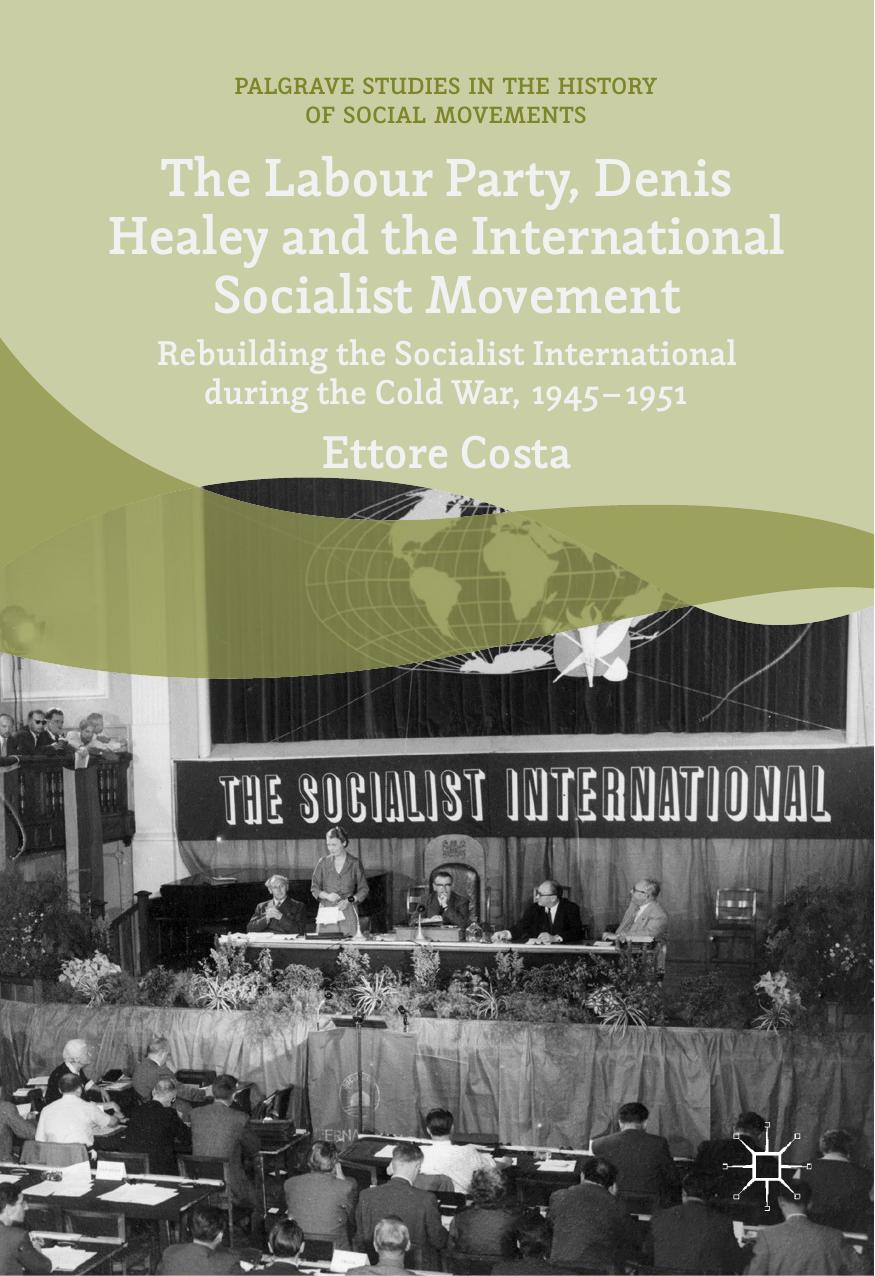The Labour Party, Denis Healey and the International Socialist Movement by Ettore Costa

Author:Ettore Costa
Language: eng
Format: epub, pdf
Publisher: Springer International Publishing, Cham
6 Breach and Restructuring
The Antwerp Conference signalled the crisis of the International Socialist Conference as an instrument for cohabitation and mediation between the very different tendencies in European socialism. Centrist compromises made by the supporters of the Third Force (Belgians, French, Labour left) or just the realists (Labour right, Czechoslovaks) forfeited any practical action and relied on verbal vagueness to hide divisions. In addition, the PvdA from the right and the PSI and PPS from the left encouraged polarisation to bring about the split.
Laski’s speech in Antwerp was his last meaningful political action. He presented the Labour Party as a guarantor of the unity of Europe and the socialist movement, highlighting the difference with the imperialist USA. He made openings to the Eastern European socialists and asked them simply for loyalty to democratic socialism.123 Nonetheless, he accepted that the economic rebirth of Germany and the Marshall Plan without political conditions were necessary to revitalise the European economy and prevent misery, the breeding ground of communism. Revived trade would benefit Eastern Europe as well. For the Polish socialists, however, German revanchism was the paramount preoccupation.
Vorrink —who, according to Nenni , ‘spoke like Truman’124—said that it was impossible to rebuild the International without free socialism to the East and it was impossible to take a position without offending the Eastern socialists. Hochfeld took offence, as the PPS was independent and it would not allow a communist monopoly of power. Larock proposed a vague resolution on world peace that satisfied nobody. The PvdA voted against, saying they wanted to condemn the repression of independent socialists in Eastern Europe. The PPS put forward an alternative resolution blaming the intensified class struggle and counterrevolution for international tensions, calling for the defence of European independence and truly popular Governments. The Czechoslovak Kraus proposed an economic resolution demanding increased productivity and international economic cooperation on a socialist basis. As critics noted, it was an intellectual piece ignoring political reality—the Marshall Plan—and the actual problem of Europe—the dollar deficit. Morgan Phillips complained that the Eastern Europeans demanded respect for their situation but would not allow the Western socialists to solve the problems with the instruments they chose. The Conference voted the two vague resolutions, leaving their implementation to the newly created Comisco.
The Cominform conference marked the end of the idea that the Socialist International could negotiate a global agreement between social democracy and communism. It was no longer possible to imagine a summit of Stalin with Attlee and Blum when they were described as traitors and tools of imperialism. While the parties were still quarrelling over Cominform and the admission of the SPD, the first meeting of Comisco, on 10 January 1948, had to implement the Antwerp resolution.125 The Norwegians, Dutch and Belgians insisted that the Marshall Plan was central and required cooperation between willing parties, which they hinted would be more productive than the Antwerp conference. The Poles argued it was an attempt to split Europe. The compromise was that it would not be Comisco but the SFIO and the Labour Party to call a conference to study the Marshall Plan.
Download
The Labour Party, Denis Healey and the International Socialist Movement by Ettore Costa.pdf
This site does not store any files on its server. We only index and link to content provided by other sites. Please contact the content providers to delete copyright contents if any and email us, we'll remove relevant links or contents immediately.
International Integration of the Brazilian Economy by Elias C. Grivoyannis(57309)
The Radium Girls by Kate Moore(10905)
Turbulence by E. J. Noyes(7037)
Nudge - Improving Decisions about Health, Wealth, and Happiness by Thaler Sunstein(6633)
The Black Swan by Nassim Nicholas Taleb(6190)
Pioneering Portfolio Management by David F. Swensen(5604)
Rich Dad Poor Dad by Robert T. Kiyosaki(5147)
Zero to One by Peter Thiel(4823)
Man-made Catastrophes and Risk Information Concealment by Dmitry Chernov & Didier Sornette(4733)
Secrecy World by Jake Bernstein(3782)
Millionaire: The Philanderer, Gambler, and Duelist Who Invented Modern Finance by Janet Gleeson(3568)
Skin in the Game by Nassim Nicholas Taleb(3459)
The Age of Surveillance Capitalism by Shoshana Zuboff(3420)
The Money Culture by Michael Lewis(3283)
Skin in the Game: Hidden Asymmetries in Daily Life by Nassim Nicholas Taleb(3263)
Bullshit Jobs by David Graeber(3177)
The Dhandho Investor by Mohnish Pabrai(3167)
The Wisdom of Finance by Mihir Desai(3077)
Blockchain Basics by Daniel Drescher(2888)
